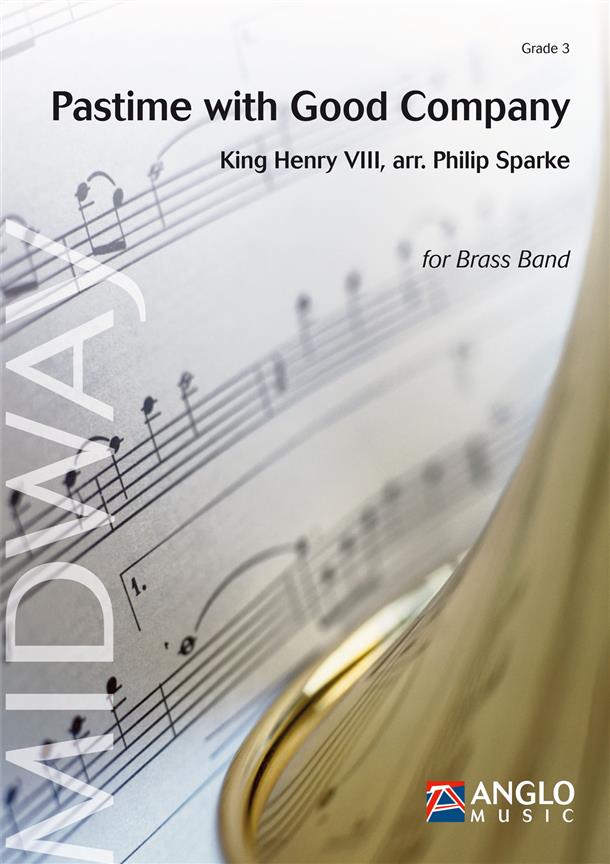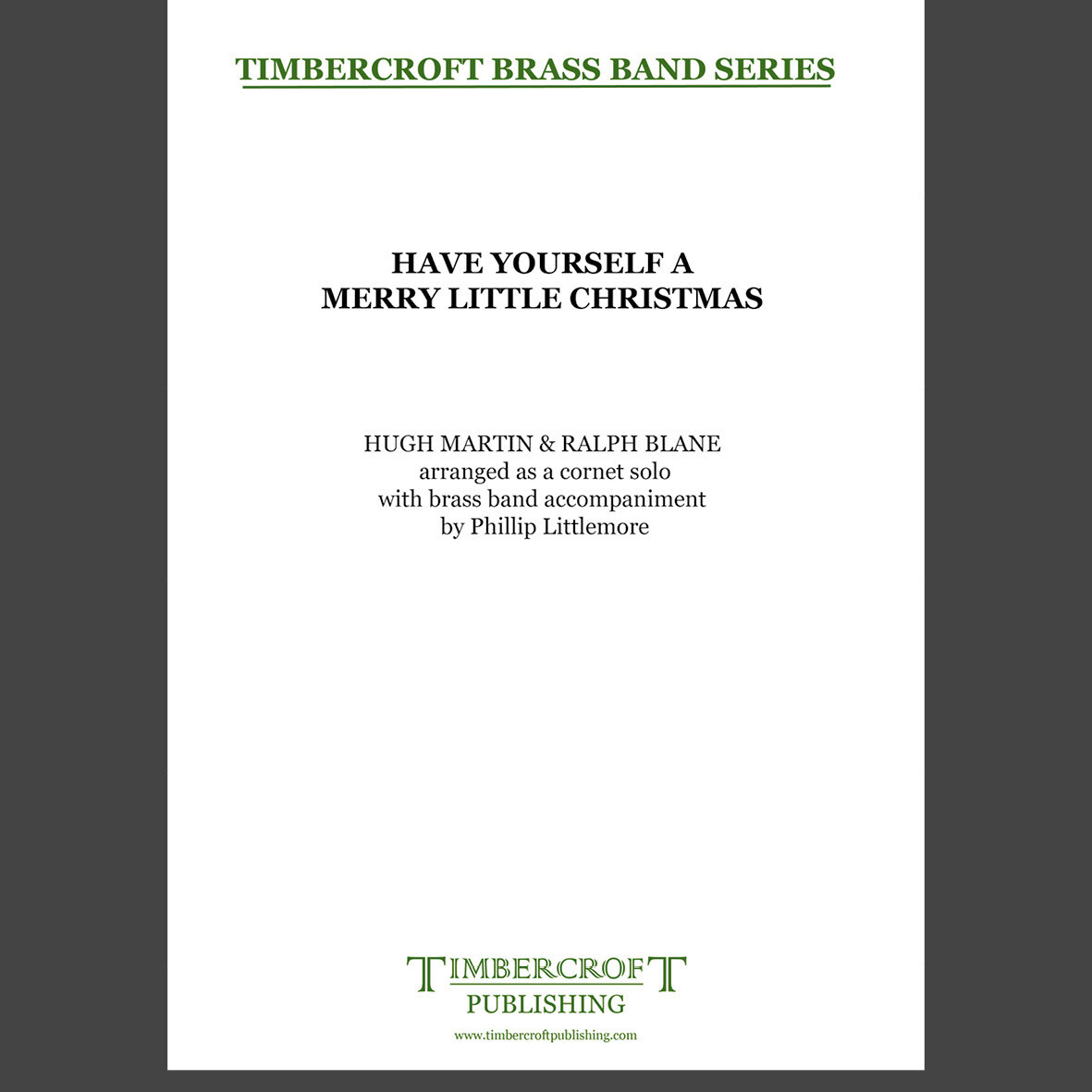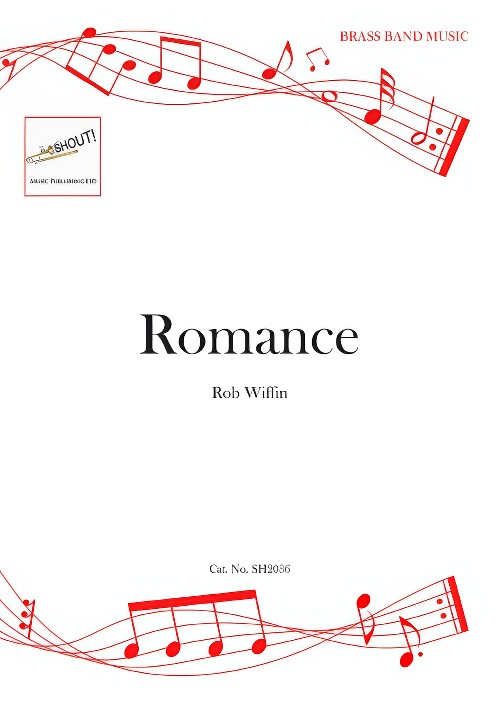Results
-
 £68.99
£68.99Pastime with Good Company (Brass Band - Score and Parts) - Sparke, Philip
The English king, Henry VIII (1491-1547), is mainly remembered for disposing of his wives on a regular basis and breaking with the Catholic Church when the Pope Clement VII refused to grant him a divorce so he could marry Anne Boleyn. He was, however, a gifted athlete, dancer and composer, writing many songs, poems and consort pieces (though not Greensleeves, as is often believed). Pastime with Good Company is undoubtedly the best-known of these, written in the first years of the 16th century while he was still a handsome prince, newly married to Catherine of Aragon and the envy of Europe. The lyrics tell of the joys of hunting, dancing and singing and would have been sung as part of the court entertainment.Duration: 6:00
Estimated dispatch 7-14 working days
-
 £55.00
£55.00Second Suite in F - Gustav Holst arr. Phillip Littlemore
Gustav Holst's Second Suite in F was composed in 1911, two years after the first suite, yet like his first suite it didn't receive its premiere until many years later, on 30th June 1922, at Royal Albert Hall in London and performed by band of The Military School of Music.The Suite uses English folk songs and folk dance tunes throughout. The opening march movement uses three tunes: a lively Morris Dance called Glorishears, the folk song Swansea Town and finally Cloudy Banks. The first two tunes are repeated to conclude the first movement. The second movement is a setting of I'll Love My Love, a sad story of a young maiden driven into Bedlam by grief over her lover being sent to sea by his parents to prevent their marriage. The Song of the Blacksmith follows with a lively hammer rhythms and the score actually asks for a blacksmith's anvil. The final movement is a fantasia based on the 16th Century English country-dance, The Dargason, with the Elizabethan love-song Greensleeves intertwined. This is a new brass band arrangement that has a lighter texture to that made by Sydney Herbert, restoring it to the original key of F and including sectioned omitted from the 1923 arrangement.Duration: c. 12 minutesDifficulty: 2nd Section and above
Estimated dispatch 5-7 working days
-
 £30.00
£30.00Have Yourself A Merry Little Christmas - Hugh Martin/Richard Blane arr. Phillip Littlemore
The successful songwriting team of Hugh Martin and Ralph Blane wrote Have Yourself a Merry Little Christmas for the 1944 MGM musical Meet Me in St. Louis, where it was introduced by Judy Garland.The original lyrics were too melancholic and Garland asked for something a little bit more upbeat instead. Blane substituted them to the now-familiar lyrics of those Garland sang in the movie, although Frank Sinatra asked for one further change so that the song could be included on his album The Joy Of Christmas. It is one of the most popular Christmas songs of all time and has been recorded by over 500 artists.This arrangement, for cornet with band accompaniment, captures the reflective style of the original song, although allows a little bit of magic to close.A video of this arrangement can be found here: Have Yourself A Merry Little ChristmasDuration: 3'20"Difficulty: Suitable for all (band accompaniment)
Estimated dispatch 5-7 working days
-
£35.00
Match Day - Peter Meechan
Match Day takes itas inspiration from a night in May 2005, when the team I have supported from my childhood, Liverpool FC, won the European Cup in what was considered by many to be one of the greatest football matches of all time.The piece is not only inspired by a football match, but also takes its musical material from chants and songs that you will hear at 3PM on a Saturday afternoon at any football ground in the country.Match Day was written as a result of a commission from the National Youth Brass Band of Great Britain, and their Musical Director, Bramwell Tovey, to whom the piece is dedicated.First performance:National Youth Brass Band of Great BritainBramwell Tovey - Conductor
Estimated dispatch 12-14 working days
-
£44.95
EXULTATE DEO (Brass Band Set) - Paul Sharman
Translated as 'Praise the Lord', 'Exultate Deo' was conceived as an overture of praise to God. It brings together three contrasting songs of praise; 'Praise Him!', 'We are here to praise you' and 'Then will the very rocks cry out'. The bold opening uses the tune 'Gerontius' to which the words, 'Praise to the holiest in the height' are associated while the music concludes with the phrase 'Praise my soul, the King of Heaven'.
Estimated dispatch 7-14 working days
-
£44.95
KERYGMA (Brass Band Set) - Steven Ponsford
The Greek word 'kerygma' was adopted by the early Christian church as a way of expressing 'the word of God proclaimed'. The composer has taken this concept and used three contemporary worship songs, 'He is Lord', 'Jesus Christ' and 'He has risen', along with fragments of the more traditional 'Easter Hymn', to proclaim in music the Lordship of the risen Christ.
Estimated dispatch 7-14 working days
-
 £54.99
£54.99Away in a Manger
In English-speaking countries 'Away in a Manger' is one of the first Christmas songs to be taught to little children. It is a moving song with simple words, which makes it easy to understand. The song is also known as 'Luther's Cradle Hymn'. This suggests that Martin Luther was the author of the lyrics. According to researchers, however, this is a misconception the author is unknown. In England 'Away in a Manger' is sung to a different melody than in the USA, for example. The 'English' melody was composed by W.J. Kirkpatrick. Andrew Mackereth made a touching arrangement of the 'English' melody, which suits the tender lyrics perfectly.
Estimated dispatch 5-14 working days
-
£54.99
All You Need Is Love - John Lennon
The Beatles remain the biggest-selling British group of all time with their countless hits and timeless classics written by John Lennon and Paul McCartney.All You Need Is Love is one such song that recently made it into the top 40 pop songs of all time. In this arrangement Thijs Oud has utilised all the original Beatles elements whilst, at the end, integrating 'snippets' of many more of their hits.Perfect for all concert programmes this will also make an excellent finale to your events.
Estimated dispatch 5-14 working days
-
 £69.99
£69.99Irish Dances - Stephen Bulla
The rich musical heritage of Ireland represents some of the greatest traditional melodies. These melodies somehow retain the flavour of the culture and its traditions, which at times can be as lively as they are enchanting. This setting for Brass Band features a familiar selection of contrasting dance-like tunes that are drawn from the modern era of traditional Irish songs.
Estimated dispatch 5-14 working days
-
 £23.95
£23.95Romance (Brass Band - Score and Parts) - Wiffin, Rob
This simple little romance was written in the style of a Catalan folk song. It is entirely original and undoubtedly influenced by the arrangements of Catalan folk songs for guitar by Miguel Llobet (1878-1938). Typical of the style, the tune is in 6/8 with a gentle lilt and has just one rather refined outburst of passion before retreating back into its shell. The lyrical nature of the music is particularly suited to the brass band.Duration: 3.30
Estimated dispatch 7-14 working days
